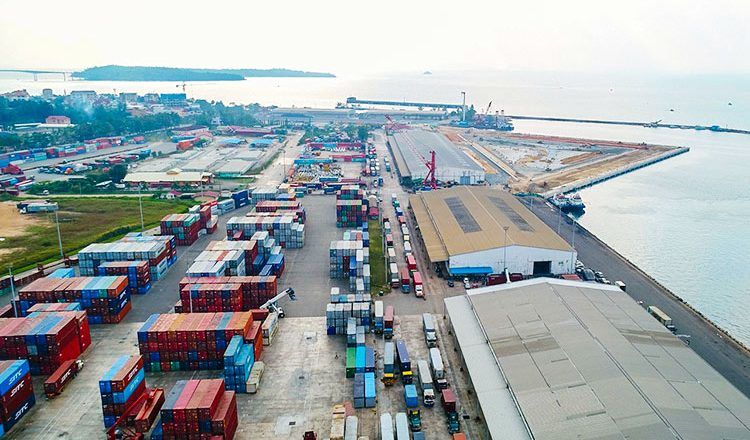Cambodia loses tariff advantages on its exports to the EU

As of today, August 12, some of Cambodia’s typical exports, such as clothing, footwear, and travel goods, are subject to European Union (EU) customs duties.
The decision to partially withdraw Cambodia’s duty-free and quota-free access to the EU market is now effective.
Cambodia’s preferential treatment under the “Everything But Arms” (EBA), the EU’s trade agreement for least developed countries, has now been temporarily lifted due to serious and systematic human rights concerns verified in the country.
The EU applies this measure while remaining open to engage with Cambodia in the necessary reforms.
Trade Commissioner Phil Hogan said: “We have provided Cambodia with business opportunities that enabled it to develop an export-oriented industry and employed thousands of Cambodians.
“We are at your side also now in the difficult circumstances caused by the pandemic. However, our continued support does not diminish the urgent need for Cambodia to respect human and labor rights. I am ready to continue our commitment and restore fully free access to the EU market for Cambodian products, provided we see a substantial improvement in that regard. »
Exports
The withdrawal of preferential access to the EU market affects approximately 20% of Cambodia’s exports to the EU.
Even Cambodia can make these exports to the EU, but they will be subject to general tariffs applicable to any other member of the World Trade Organization (WTO).
The remaining 80% of Cambodia’s exports continue to enjoy preferential access (duty free, quota free) to the EU market.
Background
The EBA agreement is part of the Generalized System of Preferences (GSP) of the EU.
The GSP allows vulnerable developing countries to benefit from the lower tariffs of duty-free exports to the EU and thus stimulate their economic growth.
It is a one-way agreement: it does not require reciprocity with EU exports.
Through the EBA agreement, the EU grants duty-free and quota-free access to its market for all products, except arms and ammunition, from least developed countries (as defined by the United Nations).
Under the GSP Regulation, tariff preferences can be suspended in the event of «serious and systematic violation of the principles» established in the international conventions on human and labor rights listed in an annex to the GSP Regulation.
Particular case
In February 2019, the European Commission opened a procedure to withdraw the EBA preferences granted to Cambodia due to serious concerns about the deterioration of political, human, land and labor rights in Cambodia.
On November 12, 2019, the Commission presented Cambodia with a report demonstrating serious and systematic violations of the key principles of the International Covenant on Civil and Political Rights (ICCPR) related to political participation, freedom of expression and freedom of association in Cambodia.

At the same time, despite serious concerns, the report highlights tangible progress in resolving land disputes in the sugar sector and with respect to labor rights.
After a comment period, on 12 February 2020, the Commission adopted a Delegated Regulation on the temporary and partial withdrawal of the tariff preferences granted to Cambodia under the EBA. The Regulation entered into force on April 25, 2020 and enters into force on August 12, 2020.
![]()

